Production Risk Management
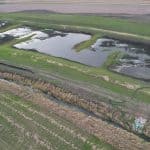
ISAP’s Edge-of-Field Incentive Directory
ISAP’s Edge-of-Field Incentives Directory provides an overview of edge-of-field (EoF) incentive payment opportunities for farmers in Illinois. EoF practices are defined as those practices which intercept, capture, and treat subsurface drainage (conservation drainage practices) or surface runoff at the field level. The conservation drainage practices include bioreactors, constructed wetlands for tile-drainage treatment, drainage water management, drainage water recycling, and saturated buffers. Surface runoff practices include vegetated riparian buffers, filter strips, prairie strips, and restored wetlands. The directory also includes a “Stacking Matrix” so farmers can easily determine if they may be eligible to stack payments from multiple programs.
Download Documents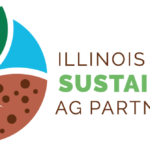
ISAP’s Ecosystem Market Information Fact Sheet
ISAP’s Ecosystem Market Information fact sheet provides a brief overview of carbon and water quality credits, a list of planning resources to assist in evaluating market potential, and tabular overviews of ten different market and program opportunities.
Download Documents
How to Grow and Sell Carbon Credits in US Agriculture
From Iowa State University Extension, this report compares the requirements to grow and sell carbon credits across 13 private voluntary agricultural programs in the United States.
View Website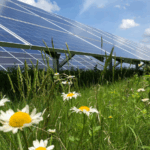
Illinois Solar Siting Overview
In the last year there has been a noticeable increase in the development of commercial and utility scale solar in the Midwest. The rapid expansion creates opportunities for farmers and landowners, but also poses threats to farmland. Illinois must find a way to produce more renewable energy while protecting farmland and serving rural communities. To better understand farmer engagement with solar development, American Farmland Trust (AFT) conducted a survey and in-person interviews with landowners and operators throughout the Midwest. In these conversations, participants described various benefits and drawbacks of solar energy deployment. This summary identifies the most important issues that participants raised, alongside AFT’s research to inform Illinois’ renewable energy strategy.
View Website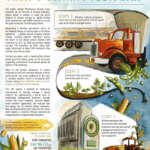
Actively Managing Your Farm’s Climate Footprint
The Nature Conservancy, American Farmland Trust, Wisconsin Land & Water, and the Wisconsin Department of Ag and Consumer Trade Protection (WI-DACTP) collaborated to create a resource to assist farmers and landowners in understanding their farm’s climate footprint. This succinct handout details the types of emissions typically found on midwestern row crop farms and possible pathways to reduce those emissions. This resource underscores how sustainability on the farm connects to the Paris Agreement, the global accord that seeks to avoid the worst effects of climate change by cutting global CO2 emissions 45% by 2030.
Download Documents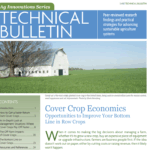
“Cover Crops Economics” Report – SARE
The Sustainable Agriculture Research and Education’s “Cover Crop Economics: Opportunities to Improve Your Bottom Line in Row Crops” looks at the economics of cover crops in corn and soybean rotations to help farmers answer that big question, when do cover crops pay?
View Website